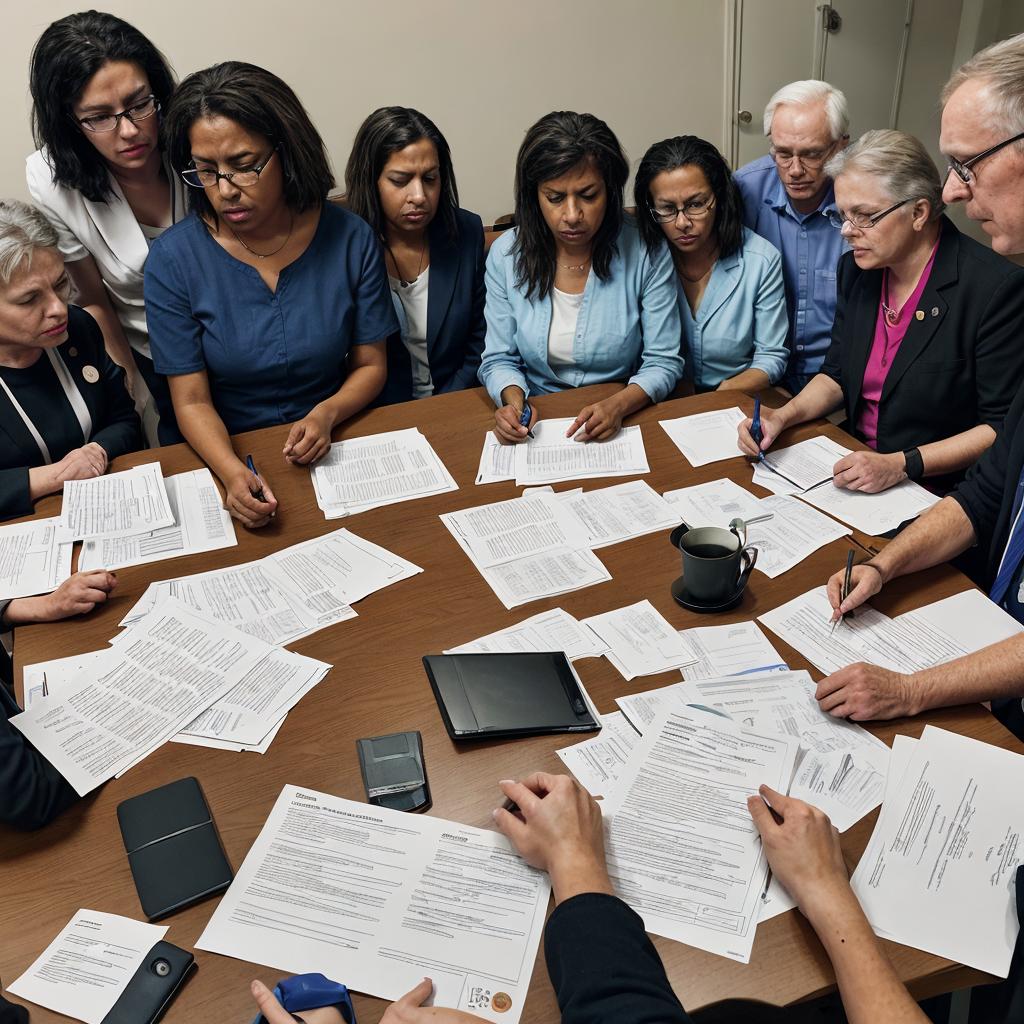Key Criteria for Medicaid Application: FAQs

Did you know that millions of Americans rely on Medicaid for their healthcare needs? If you’re considering applying for Medicaid, it’s important to understand the key criteria involved.
In this article, we’ll answer frequently asked questions about Medicaid application requirements. From income limits and asset requirements to residency qualifications and necessary documentation, we’ll provide you with the information you need to navigate the application process successfully.
So, let’s dive in and explore the essential criteria for Medicaid eligibility.
Key Takeaways
- Medicaid eligibility is based on income limits determined by the federal poverty level guidelines, which vary by state and household size.
- The modified adjusted gross income (MAGI) methodology is used to calculate income for Medicaid application, taking into account deductions and exemptions.
- Medicaid has specific asset limits that vary by state, and there are strategies, such as converting excess assets into exempt assets or transferring assets, that can help qualify for Medicaid.
- Residency qualifications, including proof of residency and a minimum residency period, are required for Medicaid application, with some exceptions for certain individuals.
Income Limits for Medicaid Application
To qualify for Medicaid, you need to meet the income limits set by the program. These income limits are determined by the federal poverty level (FPL) guidelines. Medicaid is a needs-based program, which means that it’s designed to provide health coverage to low-income individuals and families who can’t afford private health insurance. The income limits vary from state to state, as each state has its own Medicaid program with different eligibility requirements.
In general, to qualify for Medicaid, your income mustn’t exceed a certain percentage of the federal poverty level. The specific percentage varies depending on factors such as your household size and whether you’re a child, adult, or senior. For example, in some states, the income limit for Medicaid eligibility is set at 138% of the federal poverty level for adults, while for children it may be higher.
It is important to note that Medicaid uses a modified adjusted gross income (MAGI) methodology to determine eligibility. This means that certain deductions and exemptions are taken into account when calculating your income for Medicaid purposes. These deductions can include expenses such as child care costs, medical expenses, and certain types of insurance premiums.
Asset Requirements for Medicaid Eligibility
How are assets considered when determining your eligibility for Medicaid?
When determining your eligibility for Medicaid, your assets are taken into consideration. Assets refer to the value of your possessions, including cash, bank accounts, investments, and property. Medicaid has specific asset limits that you must meet in order to qualify for coverage. These limits vary depending on your state and whether you are applying as an individual or as part of a household.
To give you a better understanding of the asset requirements for Medicaid eligibility, here is a table outlining the general guidelines:
| Asset Type | Individual Limit | Married Couple Limit |
|---|---|---|
| Cash | $2,000 | $3,000 |
| Bank Accounts | $2,000 | $3,000 |
| Property | Varies by state | Varies by state |
It is important to note that not all assets are counted towards Medicaid eligibility. Certain assets are considered exempt, meaning they are not included in the asset calculation. Examples of exempt assets include your primary residence, one vehicle, and personal belongings. Additionally, there are strategies available to help individuals qualify for Medicaid by converting excess assets into exempt assets or by transferring assets to a spouse or trust.
Understanding the asset requirements for Medicaid eligibility is crucial when applying for coverage. Make sure to consult with a Medicaid specialist or eligibility worker to determine how your assets will be evaluated in your specific situation.
Residency Qualifications for Medicaid
Meeting the residency qualifications is a crucial step in applying for Medicaid. To ensure that you meet the necessary requirements, consider the following:
- Proof of residency: You’ll need to provide documentation that verifies your residency in the state where you’re applying for Medicaid. This can include a driver’s license, utility bills, or lease agreements.
- Minimum residency period: Each state has a minimum residency period that you must meet in order to be eligible for Medicaid. This period typically ranges from 30 to 90 days, depending on the state. Make sure you have been living in the state for the required amount of time before applying.
- Exceptions for special circumstances: In some cases, certain individuals may be exempt from the residency requirements. This may include members of the military, students attending school out of state, or individuals who recently moved due to domestic violence. If you fall into one of these categories, be sure to provide the necessary documentation to support your exemption.
Eligibility Criteria for Different Medicaid Programs
To determine if you qualify for different Medicaid programs, you need to understand the eligibility criteria. Medicaid is a federally funded program that provides healthcare coverage to low-income individuals and families. Each state has its own Medicaid program, and while they all follow some basic guidelines, there may be variations in eligibility requirements.
One of the most common Medicaid programs is Medicaid for low-income adults. To be eligible for this program, you must be a U.S. citizen or a qualified non-citizen, meet specific income guidelines, and fall within a certain age range. Some states also require you to be pregnant, have a disability, or be the parent or caretaker of a child.
Another Medicaid program is Medicaid for children. This program provides healthcare coverage to children from low-income families. Eligibility is based on the child’s age, income, and residency status. Children from families with income below a certain threshold, typically 200% of the federal poverty level, are eligible for this program.
There are also specialized Medicaid programs for certain populations, such as the elderly, individuals with disabilities, and pregnant women. These programs have their own eligibility criteria, which may include age, income, and specific medical conditions.
Understanding the eligibility criteria for different Medicaid programs is crucial when applying for coverage. Once you determine which program you may qualify for, you can gather the necessary documentation to support your application, which will be discussed in the next section.
In the subsequent section, we’ll discuss the documentation needed for a Medicaid application.
Documentation Needed for Medicaid Application
Gathering the necessary documentation is essential when applying for Medicaid. Without the proper documentation, your application may be delayed or even denied. To ensure a smooth and successful application process, make sure you have the following documents ready:
- Proof of identity: You’ll need to provide a valid government-issued identification card, such as a driver’s license or passport, to verify your identity.
- Proof of residency: Medicaid is typically available only to residents of the state in which they’re applying. You’ll need to provide documents that establish your residency, such as utility bills or a lease agreement.
- Proof of income: Medicaid eligibility is based on income, so you’ll need to provide documents that verify your income, such as pay stubs, tax returns, or bank statements.
These documents are crucial for determining your eligibility for Medicaid. It’s important to gather them before starting the application process to avoid any unnecessary delays. Remember to keep copies of all documents for your records.
Frequently Asked Questions
Can I Apply for Medicaid if I Already Have Private Health Insurance?
Yes, you can apply for Medicaid even if you already have private health insurance. Medicaid is designed to help individuals who meet certain income and eligibility requirements, regardless of their current insurance status.
Are Non-U.S. Citizens Eligible for Medicaid?
Yes, non-U.S. citizens can be eligible for Medicaid. The specific requirements vary by state, but generally, eligible non-citizens include lawful permanent residents, refugees, asylees, and certain other qualified immigrant groups.
Can I Receive Medicaid Benefits if I Am Unemployed?
Yes, you can receive Medicaid benefits even if you are unemployed. Medicaid is designed to provide healthcare coverage for low-income individuals, including those who are unemployed.
Do I Need to Provide Proof of My Medical Condition to Qualify for Medicaid?
No, you don’t need to provide proof of your medical condition to qualify for Medicaid. However, you will need to meet the income and asset requirements set by your state.
Can I Apply for Medicaid if I Have a Pre-Existing Medical Condition?
Yes, you can apply for Medicaid even if you have a pre-existing medical condition. Medicaid is designed to provide healthcare coverage to individuals who may have existing health conditions.



